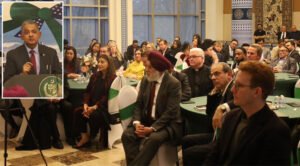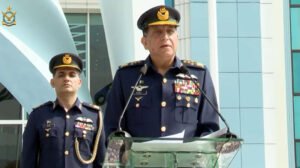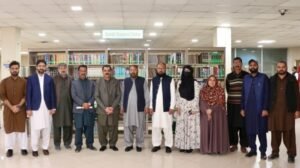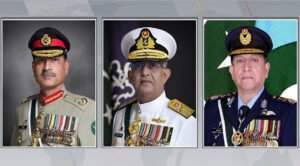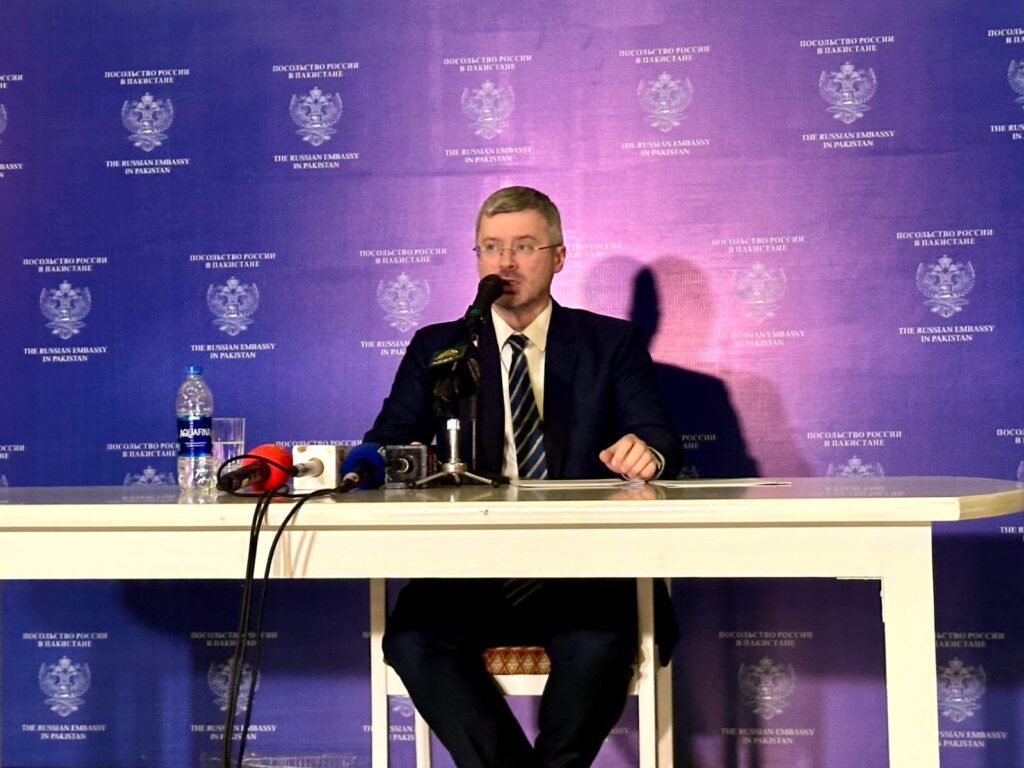
Russian ambassador to Pakistan briefs media on Ukraine war
Islamabad: Russian Ambassador to Pakistan Albert P. Khorev addressed the ongoing Ukraine crisis and Western involvement during a press briefing at the Russian Embassy. Engaging with diplomatic correspondents, he emphasized the prospects for a diplomatic resolution to the conflict. The envoy also spoke on the state of Russia-Pakistan relations, highlighting areas of mutual cooperation.
Ambassador to Pakistan Albert P. Khorev said in May 2025, President Vladimir Putin initiated the resumption of direct Russia-Ukraine negotiations, which the Ukrainian side had interrupted in April 2022. Three rounds of negotiations produced positive results regarding prisoner exchanges but revealed Kiev’s unwillingness to discuss the technical details and verification procedures of a potential ceasefire.
This is no coincidence, but rather a continuation of the Kiev regime’s and its European sponsors’ deliberate policy to undermine initiatives aimed at resolving the conflict. Since March, Ukrainians have had three opportunities to demonstrate their willingness to negotiate and their commitment to peace. In March, Kiev ignored the opportunity to cease strikes on energy infrastructure for 30 days. Then, during the Easter truce from April 19 to 21, Kiev repeatedly violated the ceasefire, doing so a total of 4,900 times. Finally, Kiev rejected President Vladimir Putin’s initiative to suspend hostilities from May 9 to 11 during the celebration of the 80th anniversary of the Victory in the Great Patriotic War.
Nevertheless, Ukrainians and Europeans are insisting on an immediate ceasefire along the entire front line. This raises a logical question: How does Ukraine plan to observe a complete ceasefire when we have seen Kiev’s total unwillingness and reluctance to agree to a limited truce this year?
The answer is obvious. Ukraine and its sponsors do not need the truce to move closer to a peaceful settlement of the conflict. Rather, they need it to regroup and rearm their army with the help of European military and financial aid, which has amounted to approximately $70.2 billion since the start of the special military operation.
Russia strongly opposes this option. We well remember what happened the last time the Ukrainians and Europeans were entrusted with the issue of peace in Donbass. The 2015 Minsk agreements, which were approved by the UN Security Council and guaranteed by Germany and France, were intended to resolve the Ukrainian crisis and stop Kiev’s offensive against its own people. This offensive began in 2014 with the aim of punishing those who refused to recognize the unconstitutional coup d’état. However, these agreements turned out to be yet another political ploy. Later, it was revealed that their purpose was to give Kiev time to rearm and launch a new punitive operation against its own people.
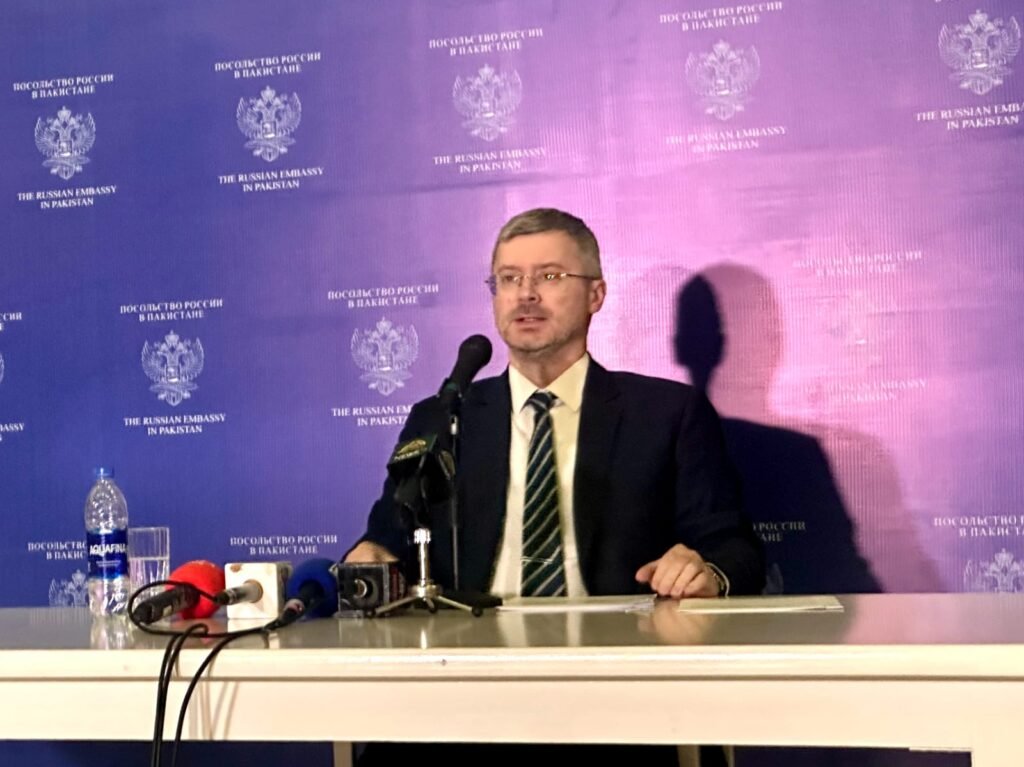
Another Ukrainian obsession is the prospect of a summit between President Putin and Vladimir Zelensky. By insisting on organizing this summit, Zelensky, whose presidential mandate expired in May 2024, seeks to legitimize himself by meeting with one of the world’s most renowned leaders. The former comedian and current head of the Kiev regime follows his old habit of making a show out of everything. Russia does not want to participate in comedic performances. We are interested in having a professional discussion about the specifics of lasting peace.
Lasting peace in Ukraine requires addressing the root causes of the conflict. This includes abandoning Kiev’s neo-Nazi policies, ending the oppression of the Russian-speaking population and Russian language in Ukraine, halting Zelensky’s crusade against the Orthodox Church, preventing NATO from expanding eastward, and keeping NATO troops out of Ukraine. Once these issues are addressed by experts, a meeting between Presidents Putin and Zelensky will be meaningful. The summit must conclude the peace process, not initiate it.
Russia is making real progress toward achieving peace in Ukraine. Although the direct Russia-Ukraine negotiations have seen limited progress, certain achievements have been made.
First, since May 2025, over 1,000 prisoners of war from both sides have been exchanged.
Second, the remains of 6,060 Ukrainian soldiers have been transferred to Ukraine for burial. Russia received 78 bodies.
Third, the myth of “Russia’s mass abduction of Ukrainian children” has been debunked. Russian negotiators received a list of 339 children suspected of having been evacuated to Russia from the war zone. Previously, Ukrainian propaganda claimed that Russia had stolen 19 thousand Ukrainian children.
Fourth, we agreed to continue efforts to establish a joint working group that would produce a step-by-step plan for achieving a ceasefire and verifying compliance.
Amidst huge losses and retreats across the entire line of contact, the Kiev leadership has resorted to organizing terrorist acts in an attempt to intimidate Russia. The most notable of these were the explosions on railway bridges in the Bryansk and Kursk regions on May 31 and June 1. These attacks claimed seven civilian lives and injured 122 others.
The despicable and cowardly actions of the Kiev regime do not affect the combat capability of the Russian Armed Forces, who continue to advance steadily in Donbass. However, these strikes on civilian infrastructure raise the question once again of whether negotiating with terrorists is necessary.
Recent legislative initiatives in Kiev are also not conducive to negotiations. The recent act “On the Foundations of the State Policy on National Memory of the Ukrainian People,” adopted by the Ukrainian parliament on August 21, further entrenches Russophobic sentiments in the legal framework of the Ukrainian state. The act prohibits the public display of Soviet-era symbols and forbids the use of the term “Great Patriotic War,” which is commonly used in former Soviet states to refer to World War II in Europe. The act also glorifies twentieth-century insurgents and Nazi collaborators, calling them “freedom fighters.” This legislation violates Ukraine’s constitution, which guarantees freedom of thought and speech (Article 34), as well as the 1965 International Convention on the Elimination of All Forms of Racial Discrimination and the 1950 European Convention on Human Rights.
Those who closely follow the domestic political situation in Ukraine are hardly surprised by such violations of legal norms. Since 2022, the Kiev regime has undergone a political transformation. The conditions it created under the pretext of introducing martial law have allowed it to establish a harsh, authoritarian system of government characterized by an absolute monopoly on power, extrajudicial killings, total censorship, state propaganda, the de facto elimination of independent media, and the destruction of the political opposition under the pretext of actively searching for fictitious Russian spies and saboteurs.
On February 24, 2022, by signing the decree “On the Imposition of Martial Law in Ukraine,” Zelensky effectively deprived Ukrainian citizens of their rights and freedoms. The decree restricts the inviolability of the home, the confidentiality of telephone conversations and other correspondence, the right to non-interference in personal and family life, the freedom to choose one’s place of residence, and the freedom to think, speak, and express one’s views and beliefs.
Today, Ukrainian citizens are effectively deprived of most of the rights and freedoms that exist around the world. During mobilization, Ukrainian authorities use the most unlawful and inhumane methods without hesitation. To avoid it, Ukrainian citizens try to leave the country or otherwise avoid joining the Armed Forces of Ukraine by using corrupt schemes.
The situation regarding the preservation of historical memory in Ukraine remains dire. Kiev is actively campaigning to destroy all Soviet, and therefore its own, memorial heritage in honor of those who fought against Nazism, while at the same time intensifying efforts to falsify the history of World War II in order to justify Nazism. All of this is being done to stir up Russophobia.
It is important to note that the vast majority of countries worldwide share Russia’s stance agains the glorification of Nazism and the justification of racism. In 2024, 119 countries, including Pakistan, supported the relevant Russian UN resolution. Fifty-three delegations opposed it, including the United Kingdom, Canada, Ukraine, and EU member states.
Together with like-minded countries, Russia does not intend to tolerate racist and neo-colonial approaches and will counter them at the United Nations and elsewhere. At the same time, we regret to note that the United Nations leadership is strongly influenced by Western countries, resulting in biased approaches and double standards.
Since the 2014 coup in Kiev, the UN Secretariat, led by António Guterres, has consistently aligned itself with the Westerners’ biased anti-Russian stance in the context of the Ukrainian crisis, citing eight resolutions of the so-called “emergency special session” of the General Assembly. Meanwhile, 30 to 40 percent of UN member states did not vote in favor of these resolutions.
Despite the global majority’s position on the situation in the Middle East, the Secretariat leadership refrains from taking active steps or publicly criticizing Israel. They also avoid attacks against the US regarding its decisions to recognize Israeli sovereignty over the Syrian Golan Heights (2019) and East Jerusalem (2017), as well as the transfer of the US embassy there. At most, UN officials routinely call for a ceasefire in Gaza, the release of hostages, and the resumption of humanitarian aid to the region, but they do not emphasize the numerous General Assembly and Security Council resolutions in favor of a two-state solution.
Thus, it can be concluded that the political leadership of the Secretariat and its staff are increasingly deviating from their assigned tasks of acting as guardians of the principles of the UN Charter in their entirety, comprehensiveness, and interconnection by consistently violating the principle of impartiality enshrined in Article 100 of the Charter and selectively applying its provisions.
In my article, “Alaska and Beyond,” published in the Pakistani press in late August, I provided a detailed assessment of Russia’s position on the outcome of the talks between the Russian and U.S. Presidents in Anchorage, Alaska. Despite its decisive advantage on the battlefield, Russia has once again demonstrated its commitment to achieving a diplomatic resolution to the conflict. The leaders of Russia and the United States have shown their willingness to compromise for the sake of lasting peace. During the Russian-American negotiations, the U.S. administration clearly demonstrated its understanding of the need to address the root causes of the conflict. President Trump is the only Western leader who has publicly acknowledged that Ukraine’s involvement in NATO contributed to this conflict.
Additionally, Americans demonstrated an understanding that those who voted in referendums on joining and returning to Russia in protest against the oppressive Nazi regime will never again live under the yoke of the current Kiev authorities. This approach is reflected in initiatives promoted by the Trump administration.
However, Zelensky and Co. completely rejected the mutual understanding achieved in Anchorage and the outlines of a possible peace process in Ukraine. We see Ukraine and European countries doing everything they can to sabotage a peaceful resolution to the conflict. New financing and support schemes for Ukraine are being created that are designed to prolong the conflict. These include legally invalid structures such as the “Register of Damage to Ukraine,” NATO Security Assistance and Training for Ukraine (NSATU), and the NATO-Ukraine Joint Analysis, Training and Education Center (JATEC).
At the same time, the Presidents of France and Germany are still insisting on deploying their armed forces in Ukraine as part of security guarantees. EU countries must understand that the presence of Western troops in Ukraine, whether under the NATO flag or as individual nations, is unacceptable and will not resolve the conflict.
The myth of potential “Russian aggression” against NATO countries is also being actively promoted in Europe. In response to the recent interception of alleged Russian drones in Polish airspace, Russian officials emphasized that the Russian military had no intention of striking targets in Poland. The Russian Ministry of Defense has expressed its readiness to hold bilateral consultations with its Polish counterparts to prove that Russian drones could not have entered Polish airspace on September 10 of this year.
The hype surrounding this event benefits the head of the Kiev regime, Volodymyr Zelensky, and European warmongers who have no interest in resolving the conflict. Russia is not interested in escalating tensions with Poland and other NATO states. On the contrary, Russia is open to constructive cooperation with anyone genuinely interested in de-escalation and establishing peace in Europe.
In closing, I would like to thank the Government of Pakistan once again for its consistent policy of neutrality in the Ukraine conflict, including at the UN, despite pressure from external forces. Pakistan strongly supports a diplomatic resolution to the conflict, a position that aligns with Russia’s stance on the issue.


